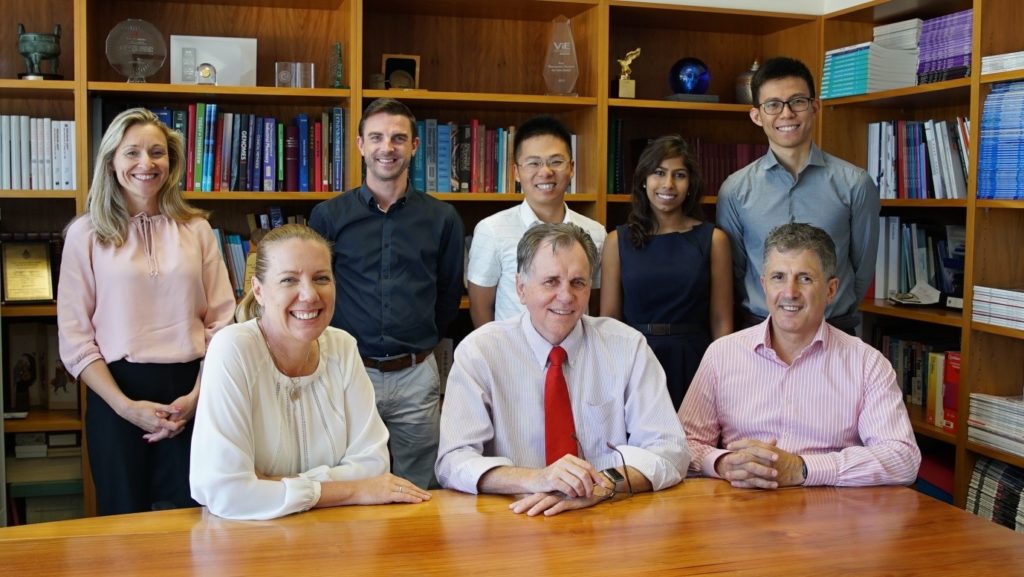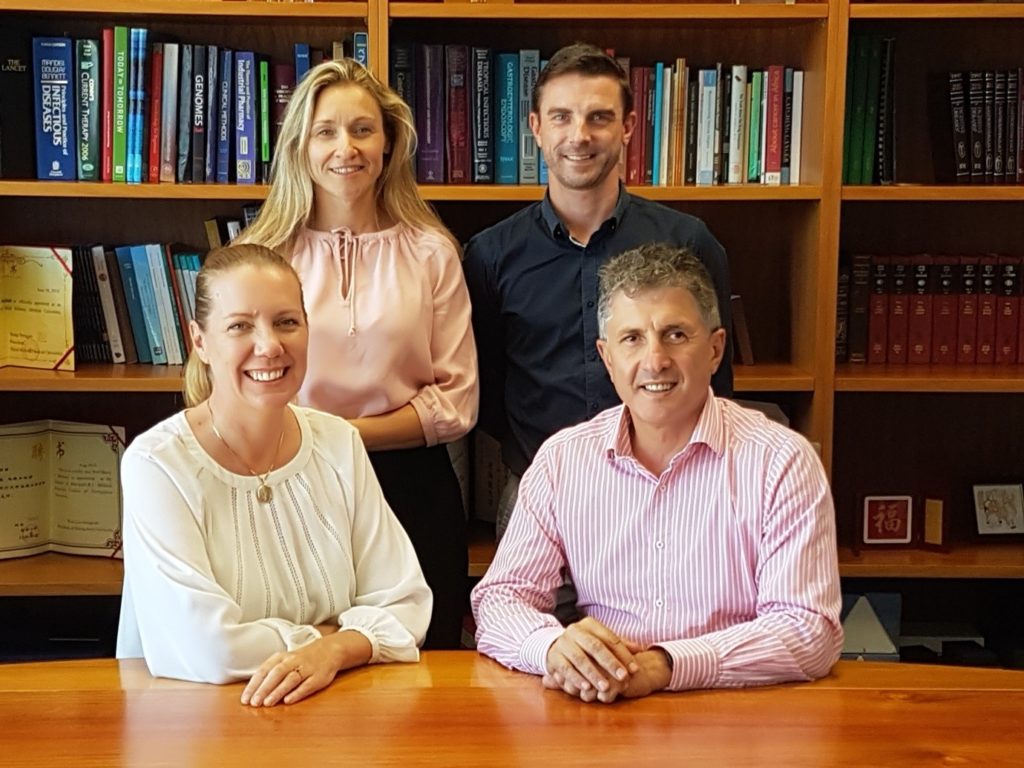Back left to right Dr Mary Webberley, Dr Gary Allwood, Dr Robert Wan, Dr Andrisha Inderjeeth and Dr Peter Du. Front row left to right, Dr Josephine Muir, Prof Barry Marshall and Assoc. Prof Adam Osseiran.
Three months of intensive research and development culminated for Dr. Mary Webberley last week when she not only won the audience’s fascination for her team’s acoustic belt technology but also the Breakout Female Scientist Award for her demonstrated leadership, commitment and tenacity throughout the ON program.
Dr Webberley is part of Noisy Guts, a team of researchers from The University of Western Australia (UWA) and Edith Cowan University taking part in the latest round of ON Accelerate. The wider Noisy Guts team, which also includes Nobel Laureate Barry Marshall, has developed a wearable acoustic belt that ‘listens’ to the rumbling sounds in the stomach over time to diagnose specific gut disorders like irritable bowel syndrome (IBS).
Before Noisy Guts and her work with UWA, Dr Webberley’s research interests were insects and their evolutionary relationships with parasites and pathogens. Some of her previous research looked at the transmission of insect STDs (which, unlike our own bacterial and viral ones, are often larger, more complex organisms). Given Dr Webberley’s passion for insects, it might be no coincidence that Noisy Guts’ belt was inspired by ‘acoustic sensing technology designed to pick up the munching sounds of termites’.
On Accelerate 4’s Team Noisy Guts (left to right Dr Josephine Muir, Dr Mary Webberley, Dr Gary Allwood, and Assoc. Prof Adam Osseiran).
After her research on insect-pathogen co-evolution, Mary joined the lab of Professor Barry Marshall—recipient of the 2005 Nobel Prize in Medicine for showing stomach ulcers to be caused not by stress but by bacteria—to research those same ulcer-inducing pathogens, Helicobacter pylori, and, like the insects before, the evolutionary relationship they share with their host, us humans.
In a more recent collaborative project, Dr Webberley and Professor Marshall have turned their attention towards irritable bowel syndrome (IBS), a common but somewhat mysterious disorder that affects up to eleven per cent of the world’s population. And though it’s so common, there’s no easy way to test for IBS, causing doctors to put their patients through other screening measures meaning ‘many patients undergoing one of the 900,000 colonoscopies performed in Australia each year do so for no reason’.
Working from the University of Western Australia’s Marshall Centre, Prof Marshall, Mary and medical doctor Dr Andrisha Inderjeeth began looking at different methods to diagnose and monitor gut disorders. Previous research showed correlations between ‘gut sounds’ (also known as ‘borborygmi’—yes, like the babbling Swedish Chef) and specific gut disorders. It seemed likely that a technique could be devised that was non-invasive, doing more listening than flushing.
Mary accepting the Breakout Female Scientist award from Larry Marshall.
After securing generous funding, The Marshall Centre expanded its team to include a hardware engineer and machine learning specialists to form the highly multi-disciplinary Noisy Guts Project. The team built an acoustic belt and Mary recruited over 300 volunteers to wear the belt and contribute to a library of gut sounds. By late 2017, the team were able to confidently identify IBS using gut sounds, and were working on expanding the belt’s capabilities.
Fast forward to ON Accelerate and the three months of training, research, and development, and then to last night, Demo Night, where Mary presented Noisy Guts’ work to an auditorium filled with researchers, investors, and potential business partners, where she won the Breakout Female Scientist Award.
What’s next for Mary and the Noisy Guts team? The curiosity and rumbling belly of investors to partner up and take the team’s belt technology to the next notch, to make it available for those eleven per cent of people suffering from IBS and other gut-related disorders. …and who knows what else they will find. Good luck, Mary!





That's Noisy Guts, find out about the other nine teams in ON Accelerate